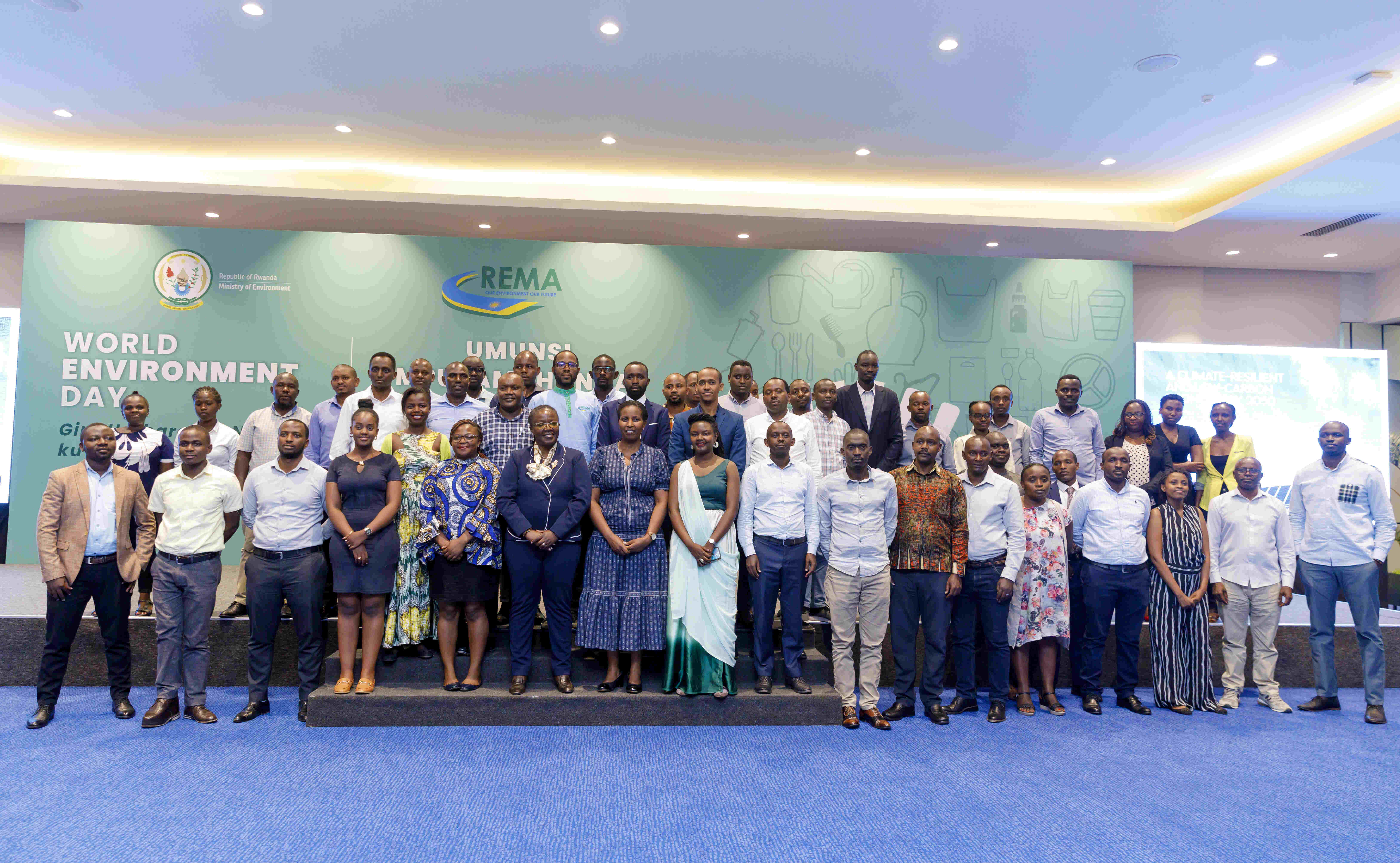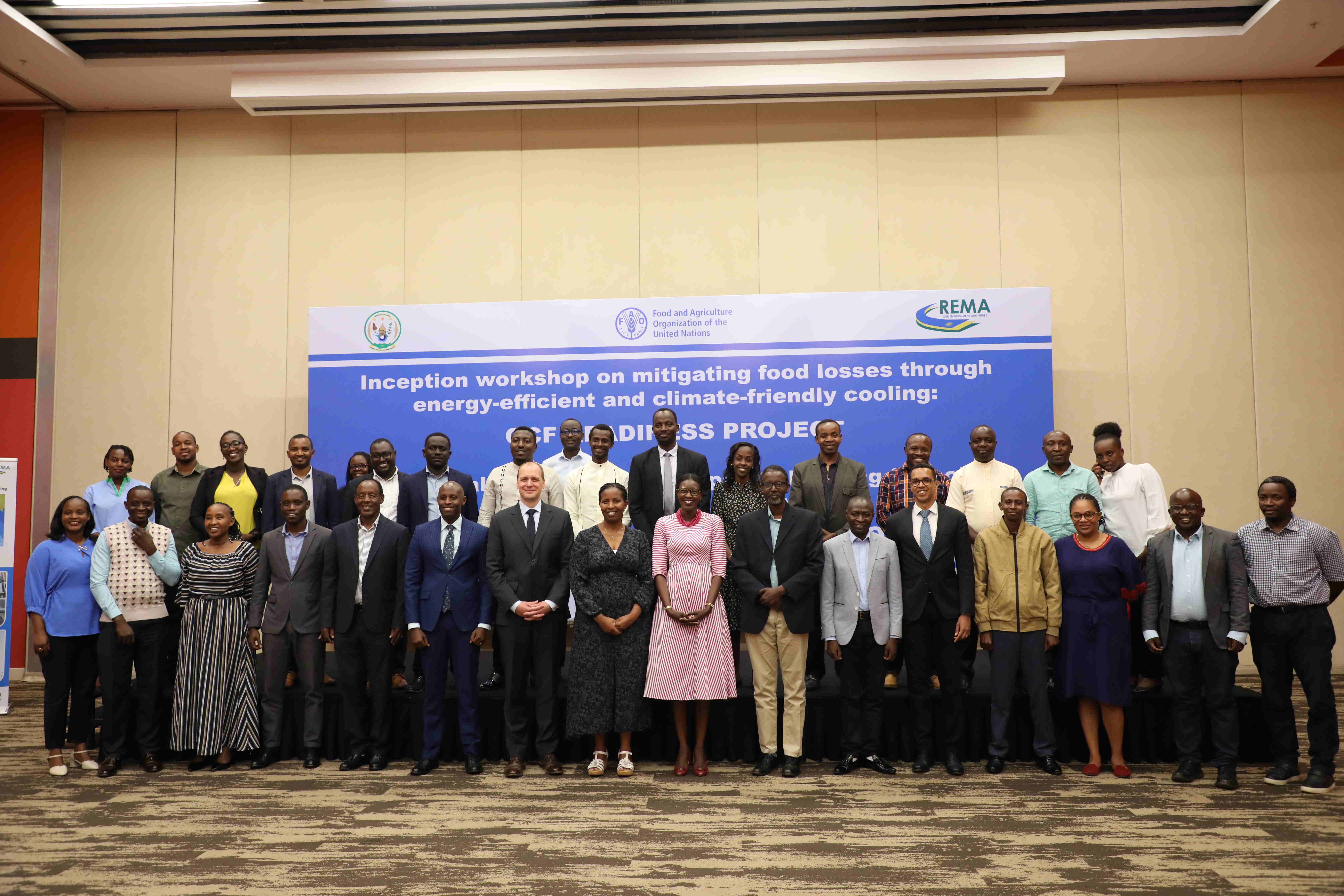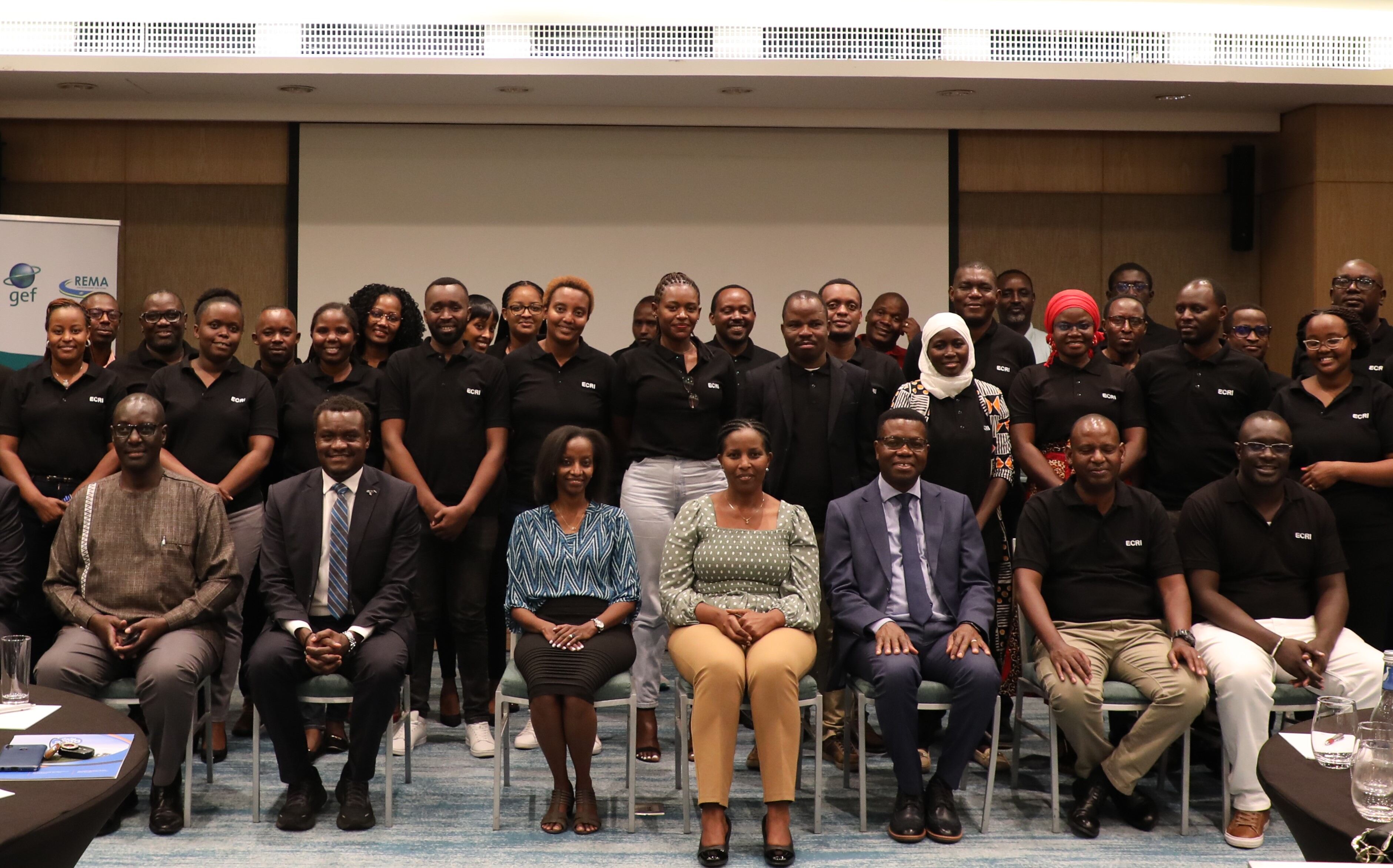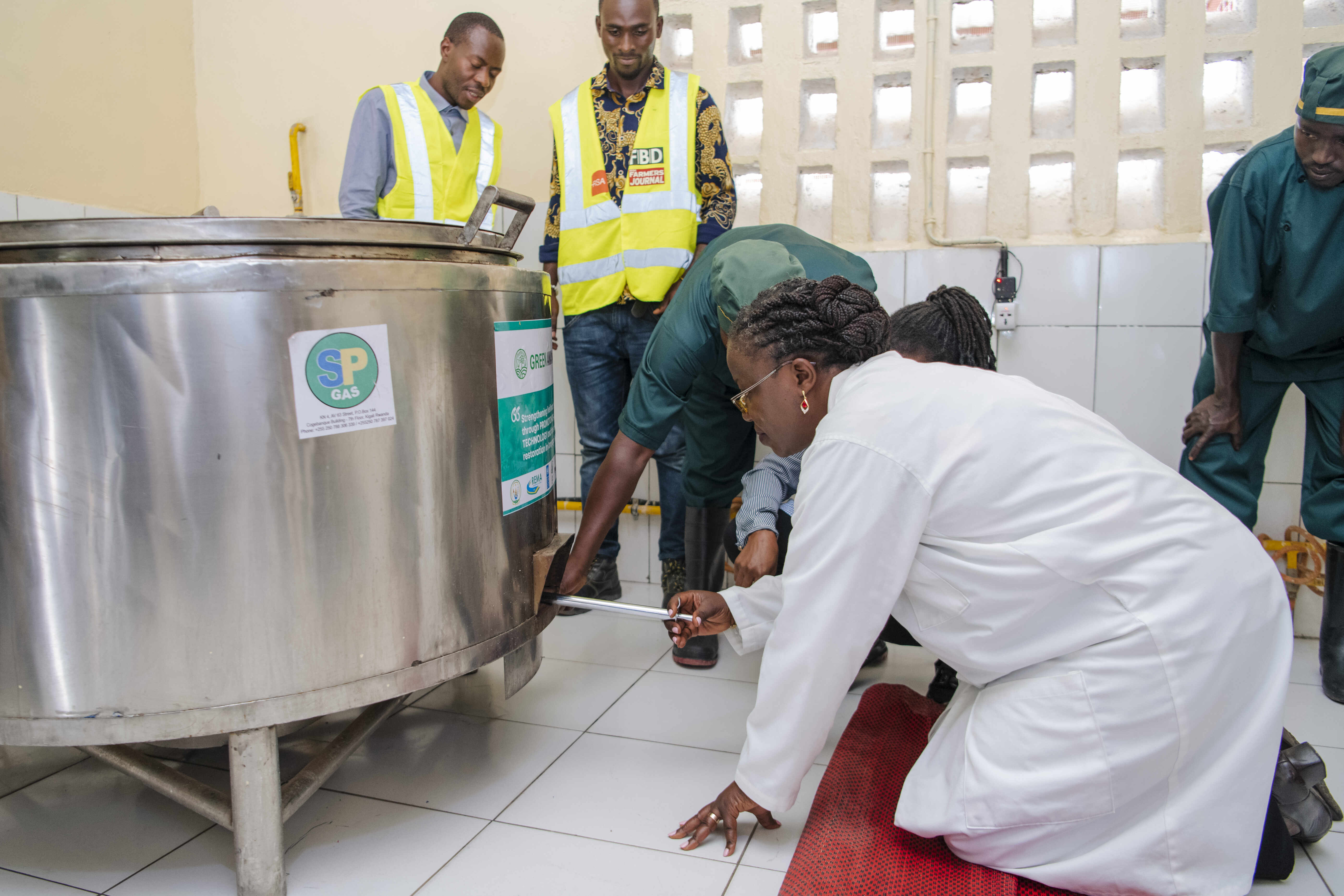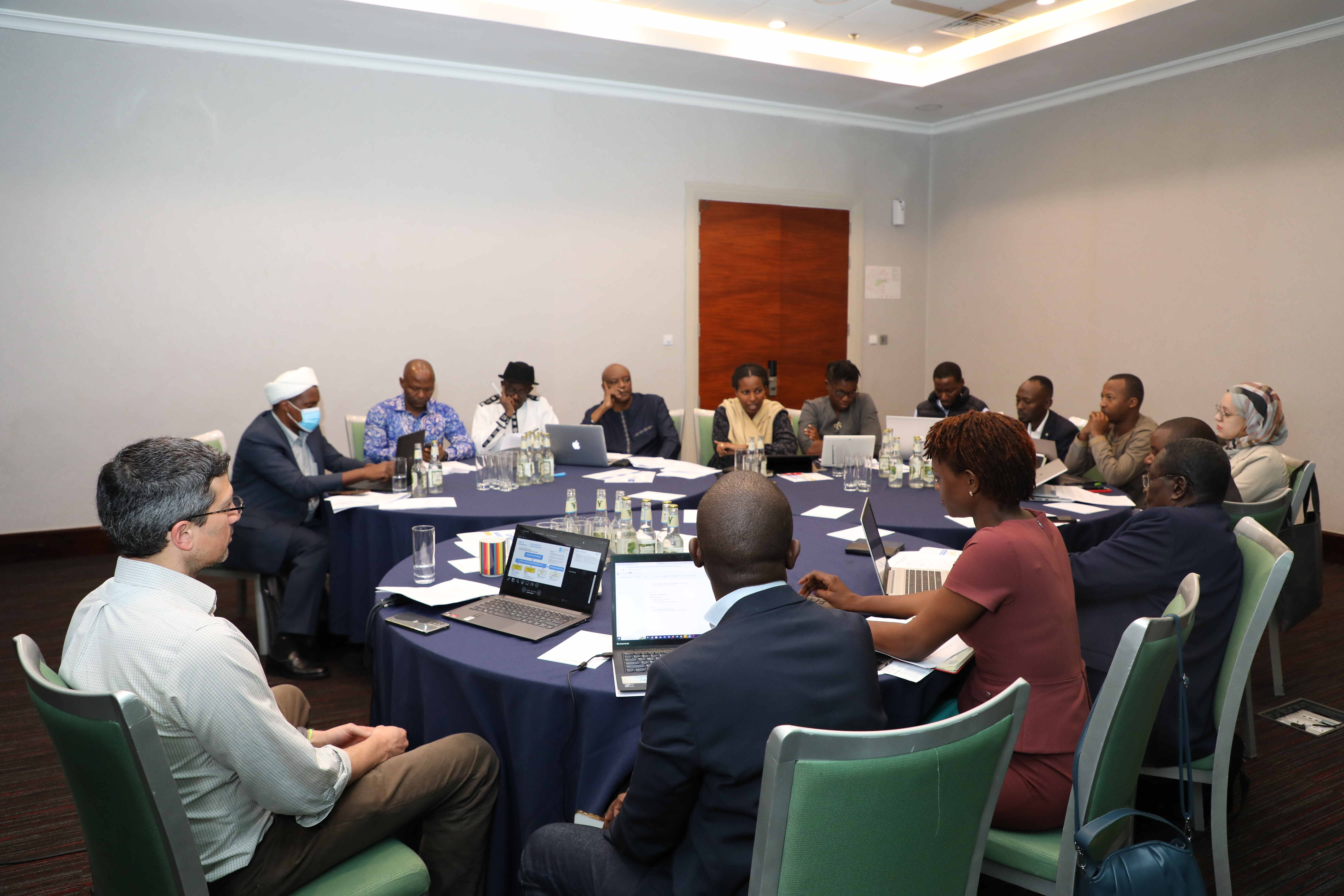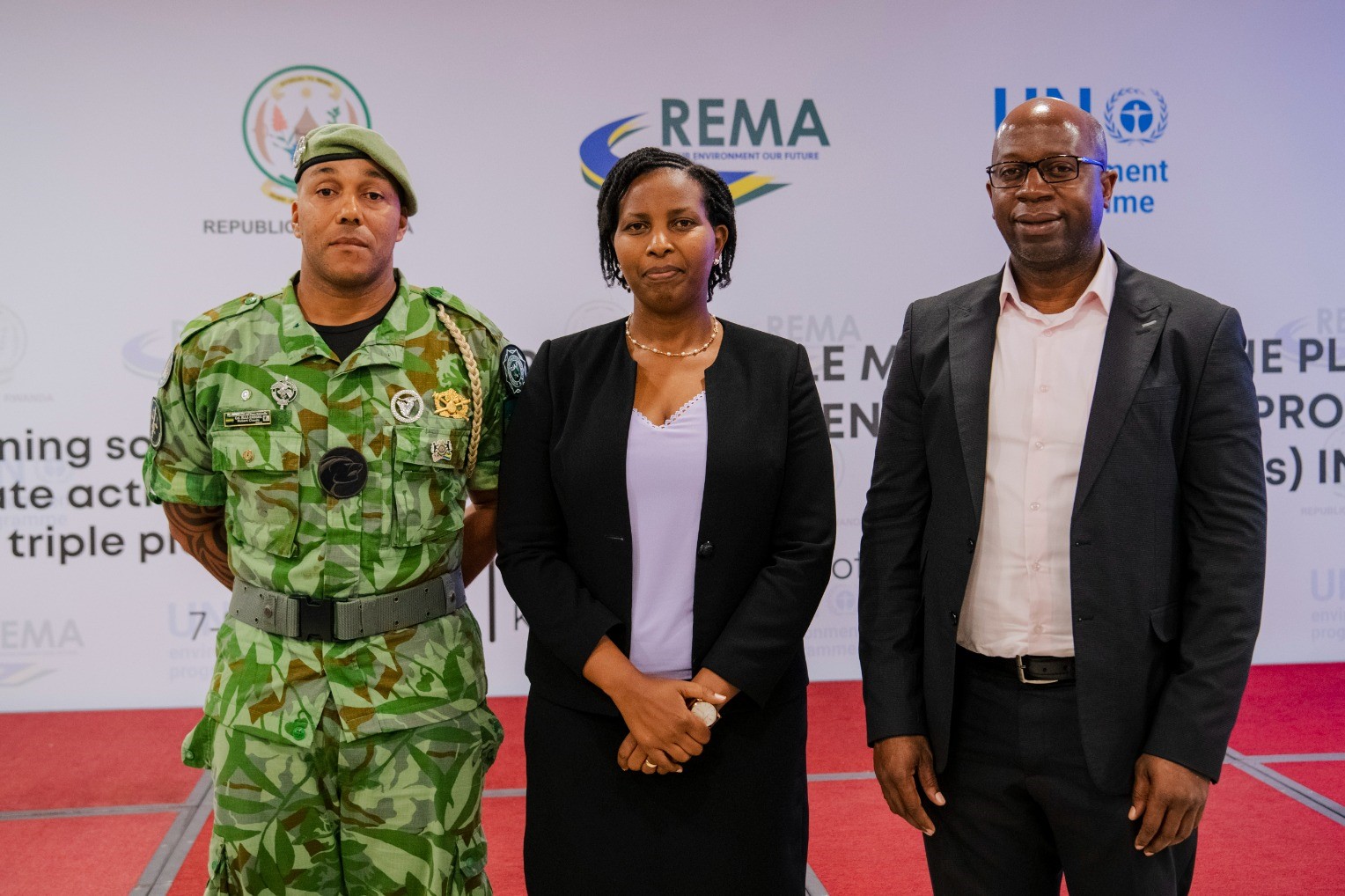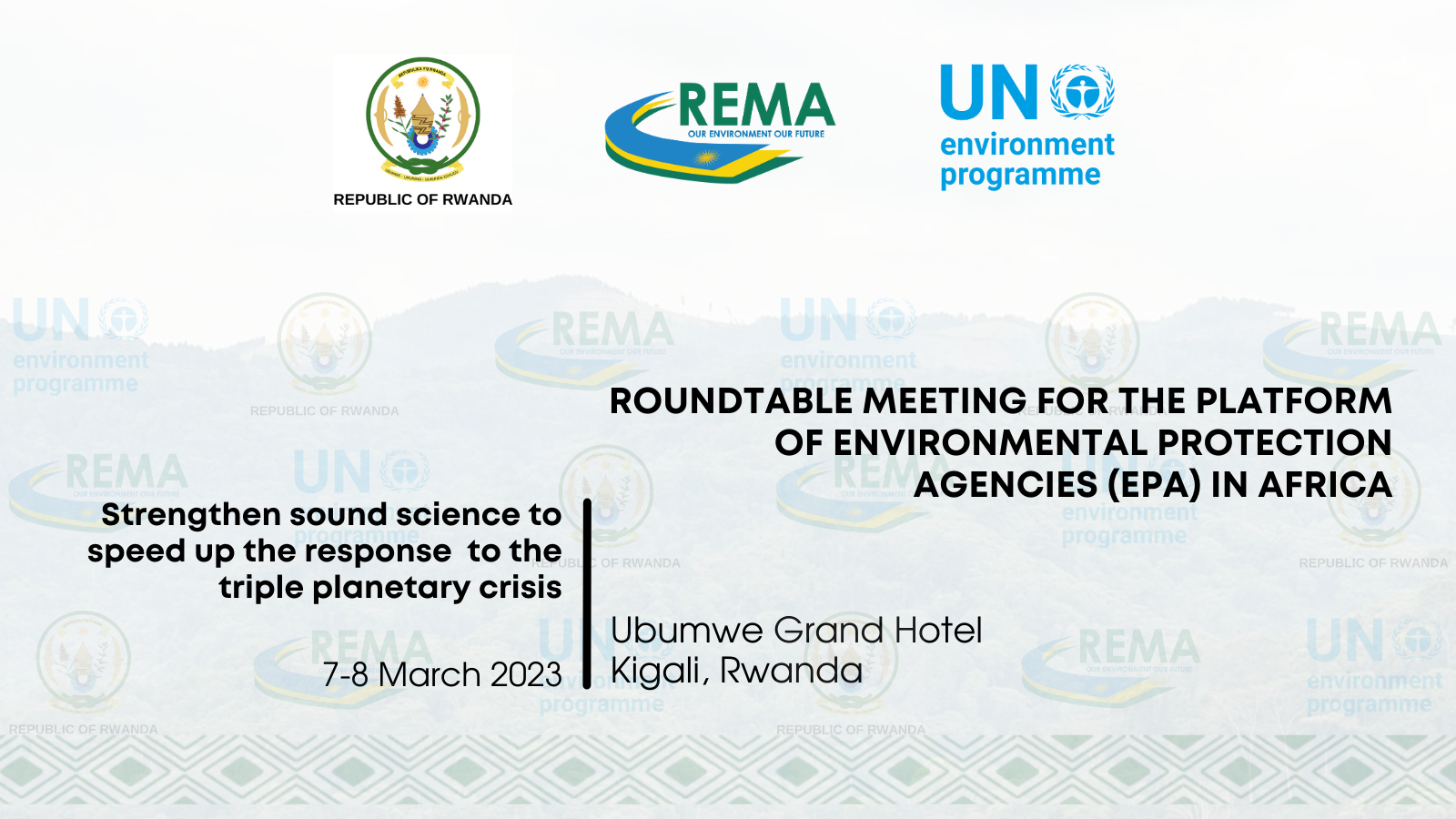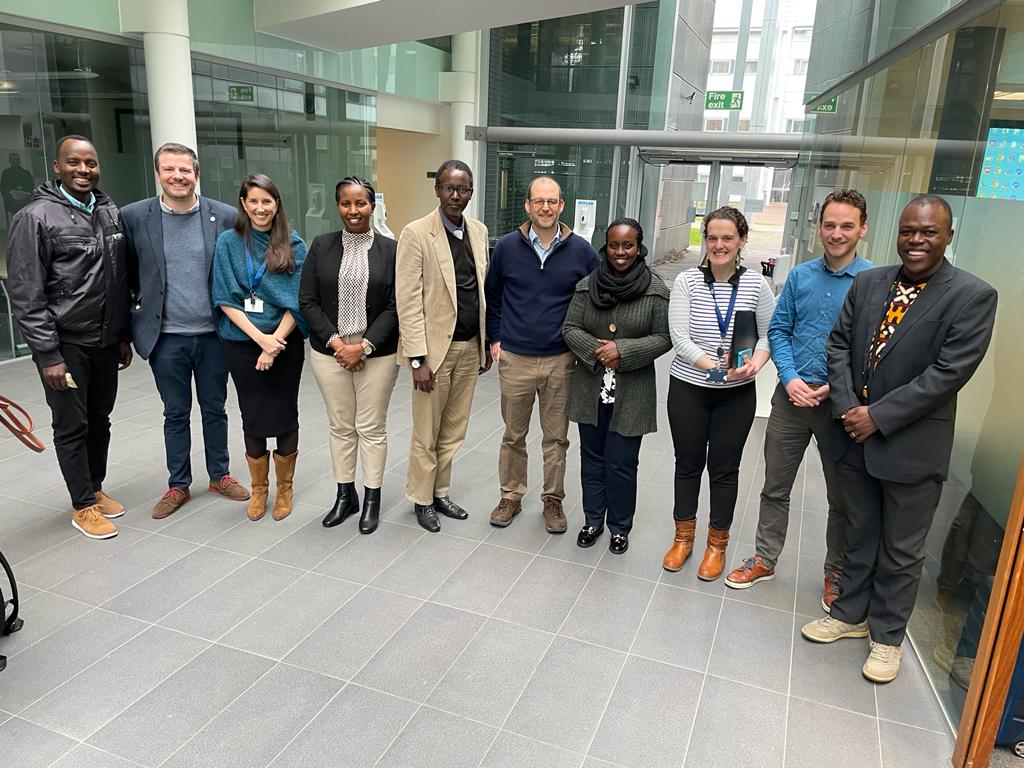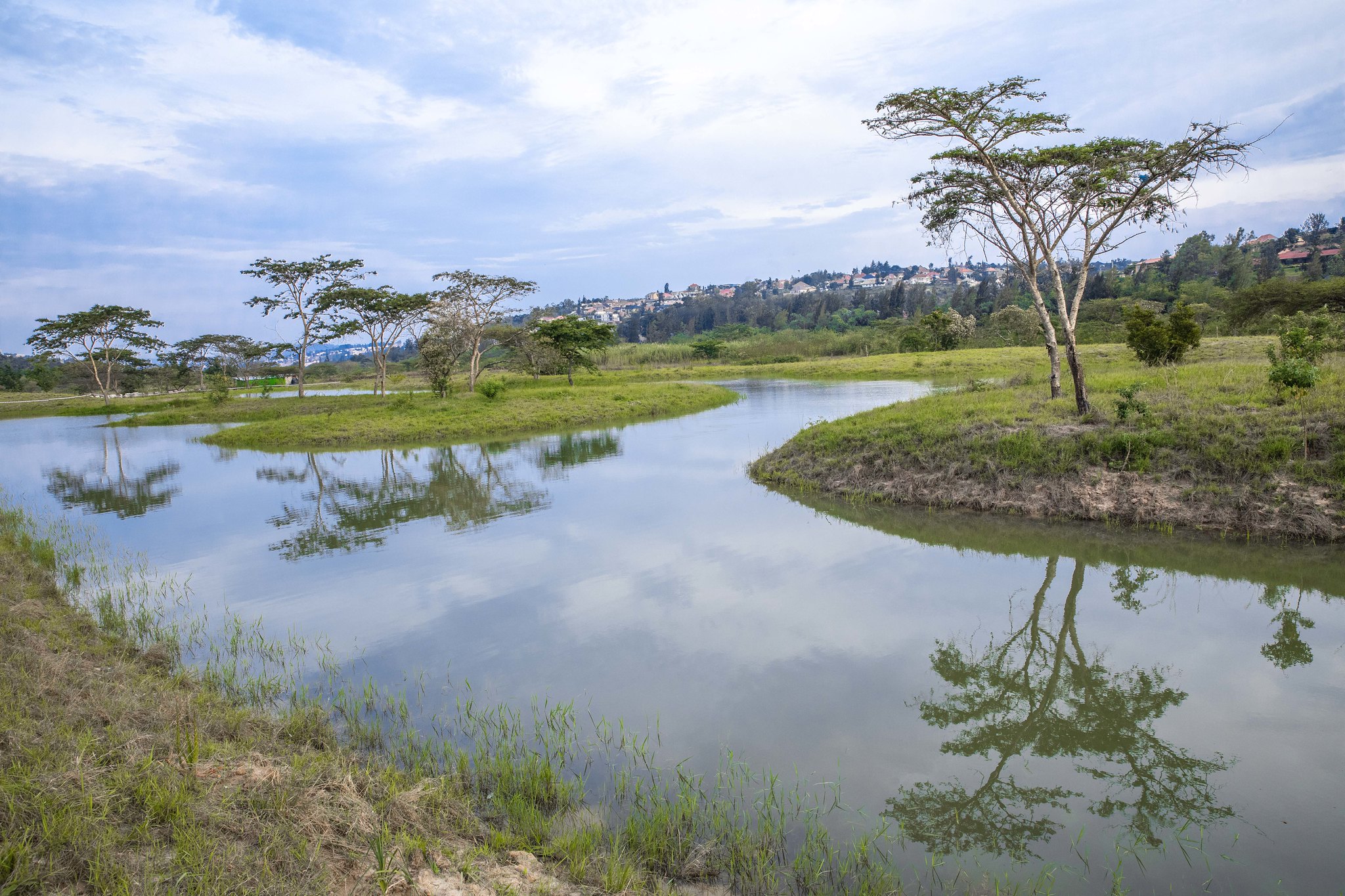
Water users encouraged to be water wise on World Wetlands Day
The Ministry of Environment, Rwanda Environment Management Authority and Rwanda Water Resources Board are encouraging all Rwandans, especially the private sector, to protect and conserve the country’s wetlands to ensure they fulfil their role in flood mitigation, water storage, carbon sequestration, and can provide a habitat for rich biodiversity and space for people to connect with nature. The call comes as Rwanda joins the rest of the world to celebrate World Wetlands Day.
The theme for this year’s World Wetlands Day is Wetlands and Water, drawing attention to the vital role and value of wetlands in sustaining water resources. Not only do wetlands store water, they also filter pollutants leaving fresh water that is safe to drink. Wetlands are valuable ecosystems on which more than one billion people rely for income generating activities and where 40% of the world’s species live and breed.
“Wetlands are source of wealth for all Rwandans. Whether we rely on wetlands for water, recreation or agriculture, we each have a role to play in their protection. Let’s all be water wise users by reporting illegal activities, applying environment friendly fertilisers and pesticides in wetlands and ensuring all commercial users have a valid water permit for the water they extract. Together, we can ensure our wetlands are healthy and full of life” said Dr Jeanne d’Arc Mujawamariya, Minister of Environment.
Rwanda is marking World Wetlands Day with a virtual public discussion on Wetlands and Water.The event brings together experts to share the country’s success in rehabilitating wetlands, water resources management challenges, the role of solutions drawn from nature and how the private sector can contribute to wetland restoration and be responsible water users.
The webinar will also feature a presentation on the Rwanda Urban Development Project II (RUDPII) that is intended to restore urban wetlands in the City of Kigali, such as the former industrial park in Gikondo. The project is part of the Global Environment Facility's Sustainable Cities Impact programme which supports cities pursuing integrated urban planning that delivers global benefits. The project will improve flood control and management in Kigali, protect biodiversity and natural capital through vegetated surfaces and urban wetland management, increase carbon stocks and additional sequestration from restored and rehabilitated wetlands, accelerate Kigali’s vision of becoming a green, sustainable city, and encourage private ecotourism investments.
On World Wetlands Day, private sector water users are requested to apply for water permits to ensure they are in compliance with the law determining the use and management of water resources in Rwanda. Permits can be applied for at www.waterpermit.rwb.rw.
About Rwanda’s Wetlands
Approximately 10.6 per-cent of Rwanda’s surface area is covered with wetlands. The biggest wetlands are floodplain wetlands of low altitude associated with major lakes such as Lake Cyohoha, Rweru, Mugesera, Nasho, and rivers such as Nyabarongo, Akanyaru, Mukungwa, Base, Nyabugogo, among others. In Rwanda, wetlands continue to play an essential role in supporting all development for sustainable development. They provide water storage, flood buffering, nutrient removal, and water purification as well as erosion control.
Despite their importance, wetlands in Rwanda face significant pressures, especially due to poor agricultural practices (uncontrolled fertilisers and pesticides), soil erosion, peat extraction, illegal mining, illegal infrastructure, pollutants from industrial wastewater discharge (organic waste, pathogens and heavy metals) among others.
Wetlands degradation and pollution has significantly impacted water quality and quantity. The declining capacity of wetlands to provide critical ecosystem services has resulted in increased flooding and lives lost, damage to infrastructure, reduced productivity, and silting of water bodies. Climate change and population growth are additional threats to wetlands and freshwater resources.
Rwanda has recorded a number of achievements in wetlands management, including restoration and rehabilitation of degraded wetlands (Rugezi, Nyandungu) and initiation of wetlands rehabilitation projects such as the Rwanda Urban Development Project II (RUDPII), relocation of commercial and household infrastructure from wetlands, development of a wetland masterplan with wise use allocations, inventory, mapping and categorisation of all wetlands and increased enforcement of environmental laws and regulations.
The recently completed Kigali Wetland Master Plan lays the foundation to rehabilitate degraded wetlands within the city. The plan details the areas that need rehabilitation, as well as identifying wetlands with the potential for ecotourism and agriculture activities. The plan is currently being disseminated to relevant stakeholders including government institutions, private investors, and development partners. The next phase of the technical work is to synchronise Wetland Master Plan with the broader City of Kigali Master Plan to harmonise and monitor the wetland management implementation.
Learn more at www.environment.gov.rw, www.rema.gov.rw and www.rwb.rw.
Topics
More posts
RWANDA MARKS WORLD ENVIRONMENT DAY AFTER WEEKLONG CAMPAIGN PROMOTING SOLUTIONS TO PLASTIC POLLUTION
Rwanda has on June 5, 2023 joined the rest of the World to mark the World Environment Day (WED 2023), which is marked with the theme Beat Plastic…
Rwanda and partners launch two projects to advance energy efficiency and sustainable cooling
The Government of Rwanda, through the Rwanda Environment Management Authority (REMA), the Food and Agriculture Organization (FAO) and the Green…
REMA launches the Evidence-based Climate Reporting Initiative to advance climate research and reporting
The Rwanda Environment Management Authority (REMA) in collaboration with the African Institute of Mathematical Sciences (AIMS) have on May 19, 2023…
National Ozone Officers meet in Kigali to discuss the implementation of Montreal Protocol and its Kigali Amendment
The Rwanda Environment Management Authority (REMA) in collaboration with the United Nations Environment Programme (UNEP)’s OzonAction has organized a…
Minister Mujawamariya officiates the use of LPG donated to 20 schools by REMA through Green Amayaga Project
The Minister of Environment, Dr. Jeanne d’Arc Mujawamariya has on 3rd May 2023 launched the use of Liquefied Petroleum Gas (LPG) for bulk cooking in…
Delegates from across Africa meet in Kigali to Develop Priorities and Strategies for International Legally Binding Instrument to End Plastic Pollution
The Rwanda Environment Management Authority (REMA), in collaboration with the Environmental Investigation Agency (EIA) and the Center for…
Rwanda elected to chair Platform of Environmental Protection Agencies in Africa
The first-ever roundtable meeting of Heads of Environmental Protection Agencies and Directors of Environment in Africa (EPAs) has elected Rwanda to…
Rwanda to host African Heads of Environmental Protection Agencies to discuss common environmental challenges
Rwanda will from 7–8 March 2023 host the first meeting of the Heads of Environment Protection Agencies and Directors of Environment in Africa (EPAs).
…Delegates from Rwanda conduct a strategic tour in UK to pave the way for the operationalization of ACES
Rwandan Delegates and the Africa Centre of Africa Centre of Excellence for Sustainable Cooling and Cold-Chain (ACES) Project team are participating in…
